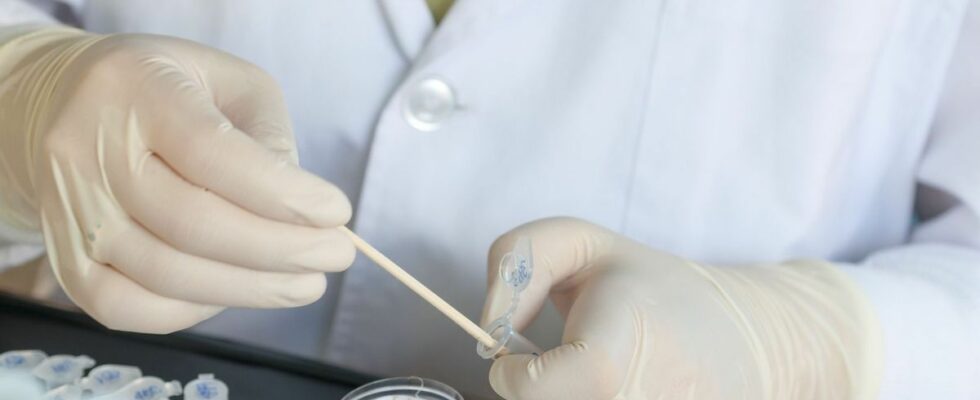Published on
Updated
Reading 2 min.
in collaboration with
Florent Chapel, co-president of Autism Info Service
A new study conducted by scientists from Hong Kong highlights the intestinal microbiota trail in autism. Will it soon be possible to speed up the diagnosis of this disorder, through stool analysis? Doctissimo interviewed Florent Chapel, president of Autisme info service.
Currently, the diagnosis of autism spectrum disorder (ASD) is made at the age of seven or eight.Before, doctors usually have suspicions, but sometimes certain disorders resolve when the child grows up.” explains Florent Chapel, president of Autism Info Service.It is only from this age, in fact, that we can detect this disorder with certainty.”
Speeding up diagnosis with stool analysis
To improve the diagnosis of this disorder, Chinese researchers have worked on the intestinal microbiota track, drawing on the results of previous studies and conducting a new study.
After analyzing 1,627 stool samples from children aged 1 to 13, both with and without ASD, the researchers found several distinct biological markers in the samples from autistic children.
In total, the scientists identified 31 biological signatures that distinguished the groups. They also tested whether these markers could be used to correctly identify which stool samples belonged to an autistic person. According to the scientists, the model used made the correct predictions almost always, with an accuracy of up to 82%.
Towards a new diagnostic tool to detect autism?
“These unique traces of intestinal bacteria, fungi, viruses, could serve as the basis for a new diagnostic tool” explains Qi Su, a researcher at the Chinese University of Hong Kong and lead author of the study.A biomarker-based tool could help professionals diagnose autism earlier, giving children access to more effective treatments at a younger age.”
The researchers cautioned, however, that it was difficult to say whether the stool sample tests would work in a clinical setting. Dr. Su also said it was essential to validate the study design in a more diverse sample of children, since most of the samples came from children in Hong Kong for this work. The researchers are now working on a clinical trial to test stool samples to see if their composition can identify children with autism as young as one year old.
Autism is a disorder detected by clinical examination, at present
Asked about this study, Florent Chapel remains cautious.In France, the only way to diagnose autism is clinical, through reference centers. Parents who have any doubts should contact Autism Info Service, to be guided on the steps to follow.”.
However, he does not deny the interest of this publication.It provides new elements on the track of the intestinal microbiota in autism. To date, the only scientific confirmation that we know is the genetic origin of this disorder. But as research continues, other elements will undoubtedly be discovered and will shed new light, to better understand autism spectrum disorders.”.
